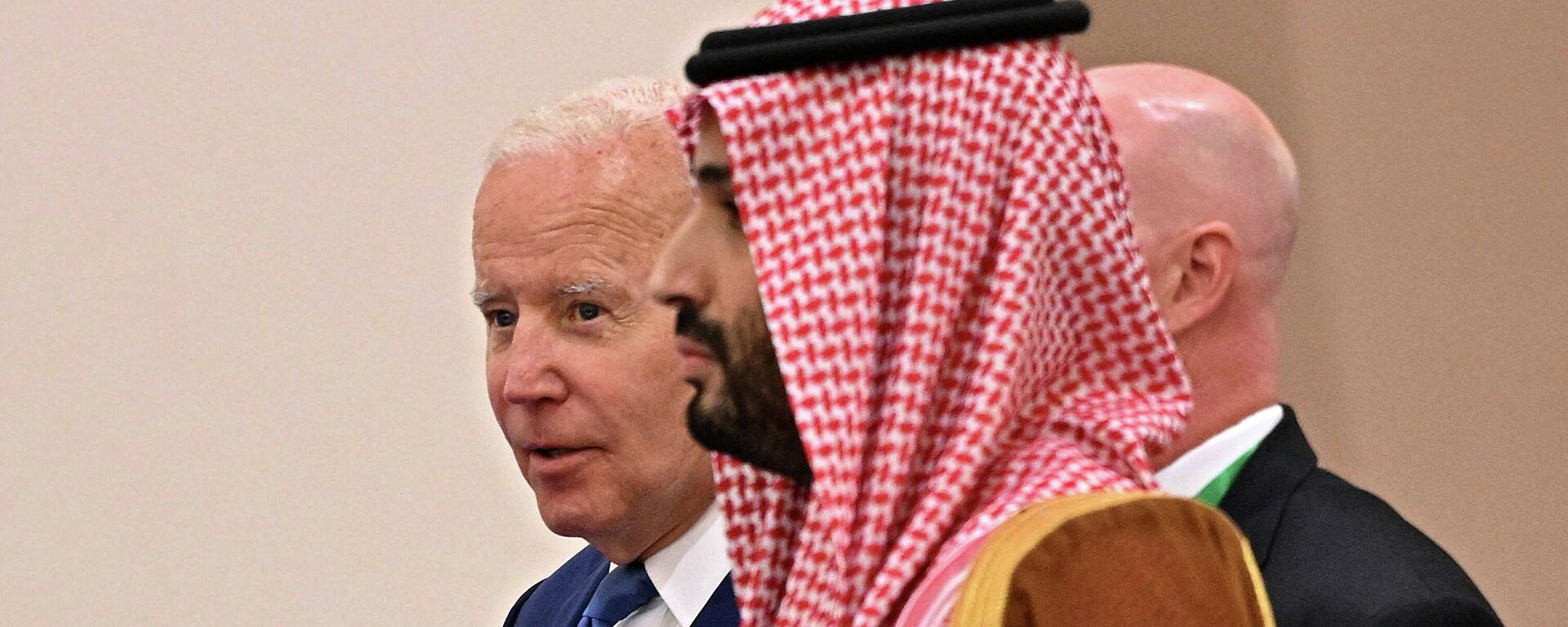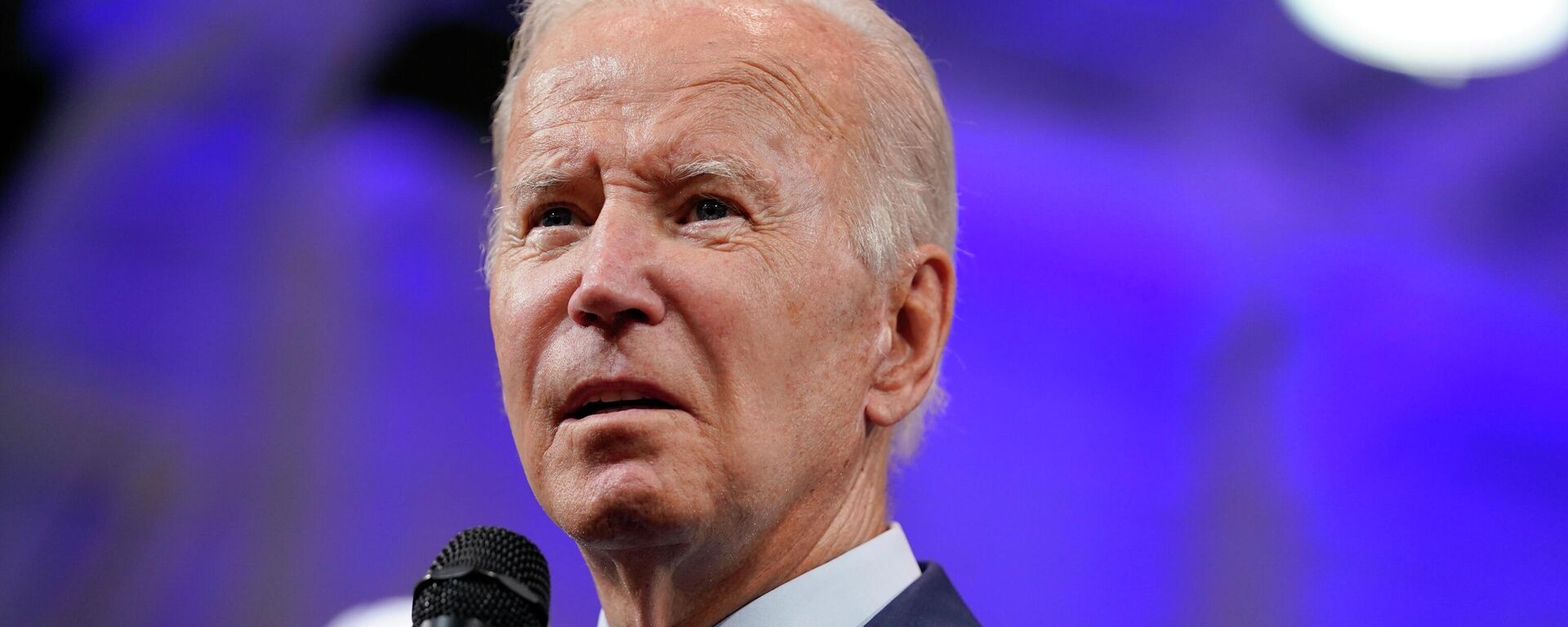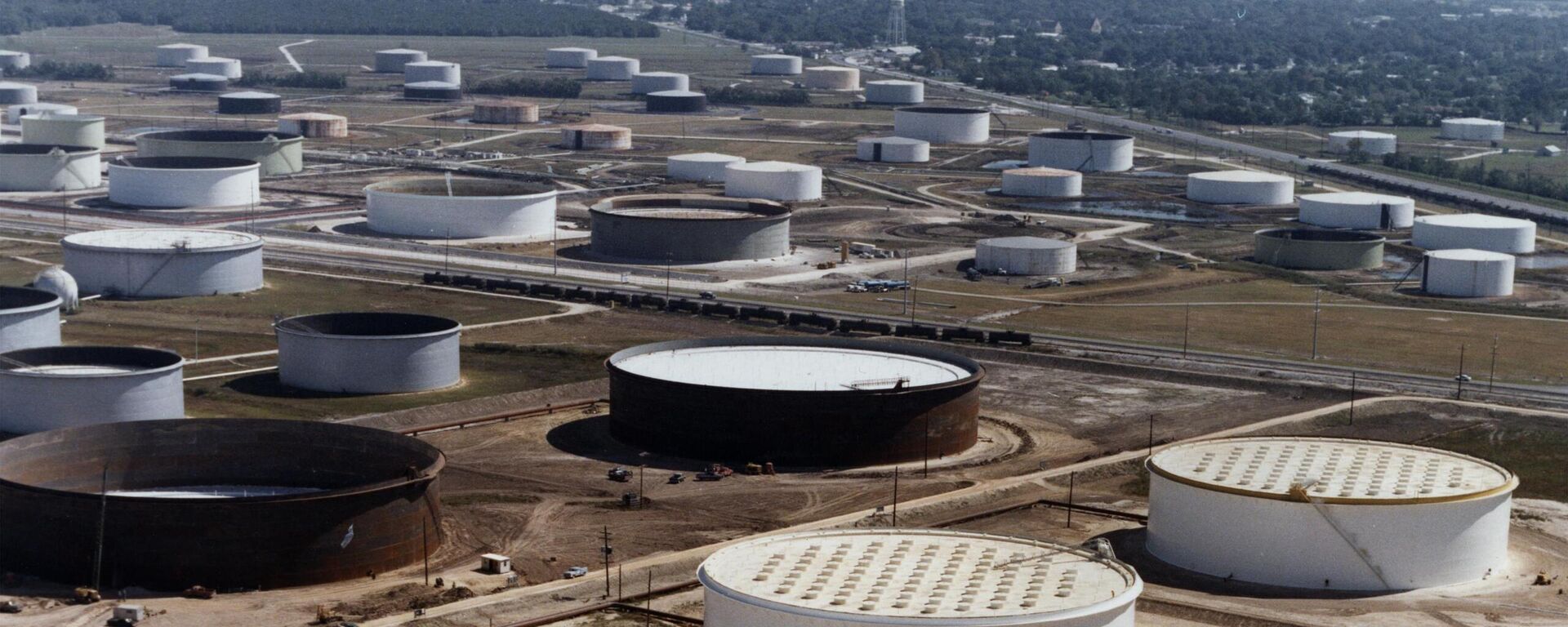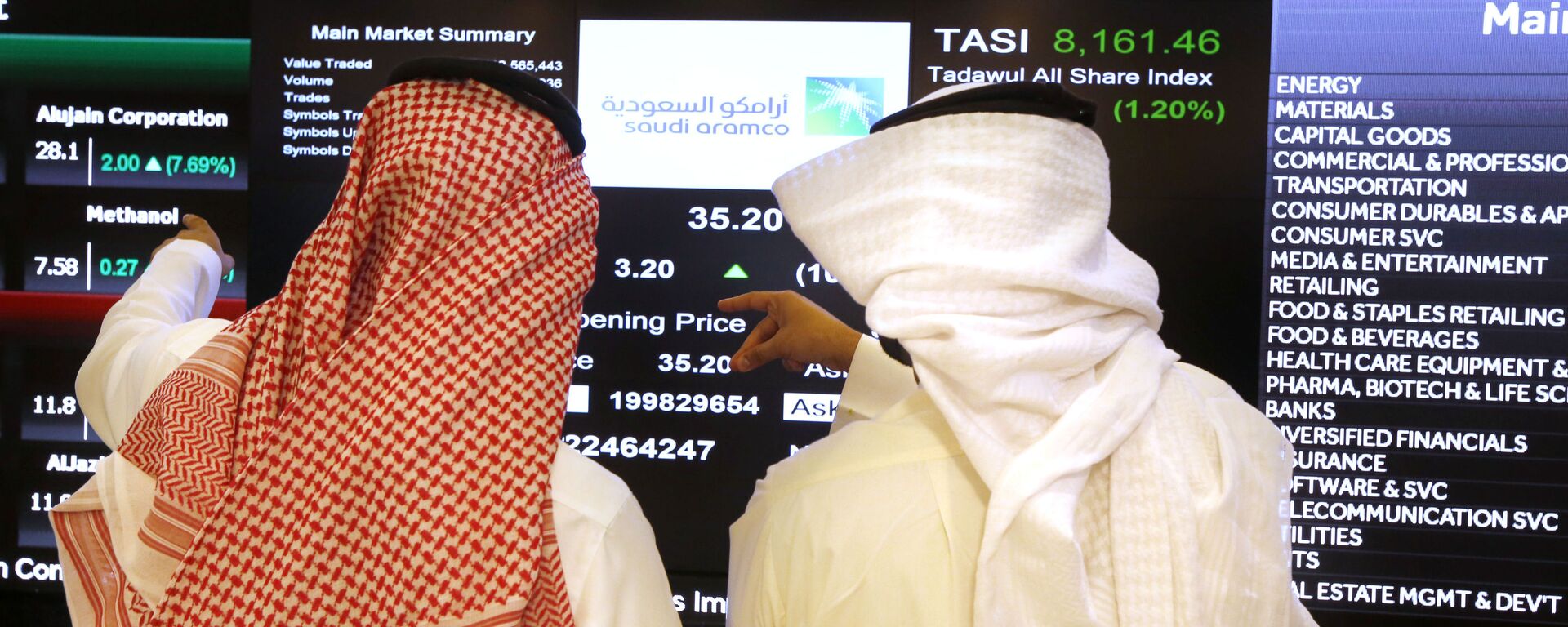‘Oil War’ Unleashed by Biden’s SPR Release Could Mean $300-a-Barrel Crude, Analyst Warns
15:41 GMT 27.10.2022 (Updated: 14:20 GMT 15.11.2022)
Subscribe
On Tuesday, Saudi Energy Minister Prince Abdulaziz bin Salman warned the Biden administration that its decision to further chip away at the US’s emergency oil reserve by releasing an additional 15 million barrels of crude could result in “pain” “in the months to come.” Washington moved to open the taps after OPEC+ agreed to cut production.
Saudi Arabia’s back-to-back warnings this week against using energy as a weapon and against a hurried rush to transition away from traditional fossil fuels to green energy is based on Riyadh’s desire to preserve stability in energy markets, and the global economy as a whole, political analyst Dr. Ahmed al-Ibrahim says.
“It is clear” that Washington's decision to release another 15 million barrels from the Strategic Petroleum Reserve onto the market “will be painful for the emergency stock,” the Riyadh-based specialist in Saudi-US relations told Sputnik.
The observer pointed out that that draining the SPR now may result in shortages in the event of an actual energy emergency.
According to the latest Department of Energy figures, America’s emergency sweet and sour oil reserve currently has about 401.7 million barrels in its inventory, dropping by double-digit rates every month since March, when the Biden administration announced that it would be tapping the stockpile to try to get gasoline prices under control. With the US economy consuming about 20 million barrels of oil per day, the SPR currently has enough crude to last just 20 days if production and imports were somehow halted due to an emergency. The SPR’s stocks have already fallen to their lowest levels since the mid-1980s.
The additional release comes after OPEC+ agreed in early October to slash oil production by 2 million barrels per day starting in November in response to uncertainty in global energy markets. US officials have criticized the decision and vowed to retaliate.
Al-Ibrahim characterized that the administration’s move to release more crude as a step akin to a declaration of an “oil war” by the White House, and warned that it may lead to a repeat of the unprecedented situation which took place in April 2020, when disagreements between Saudi Arabia and Russia on output led crude prices to briefly dip into historically unprecedented negative territory, leading to a crash of the oil market and to devastating consequences for some crude producers, including the United States.
“I think this step is uncalculated by the Biden administration. The only thing right now in the Biden administration is how to win the midterm election. So they are politicizing oil in the internal politics of the United States. And this is something very different from what the OPEC+ is doing by actually stabilizing prices of energy around the world and not actually politicizing oil,” the observer stressed.
Commenting on the Saudi energy minister’s warning that the draining of the US energy stocks may lead to “painful” consequences, al-Ibrahim explained that this “pain” could impact the oil market in a number of ways.
“At the end of the day, consumers will either need to pay $300 per barrel or chaos in the market is going to take place,” he warned.
Suggesting that a $90-per-barrel price tag for oil may very well become the ‘new normal’ thanks to inflation, rising insurance and shipping costs, etc., al-Ibrahim argued that this “may be the right price that we are going to see for oil for many decades from Now."
"Again, America is selling their LNG [for] five times [the cost] to Germany and France and nobody is talking about it. The US is not discussing it, because it’s a revenue stream for this administration and they are looking for their own benefit only, and they are not looking at how OPEC+ members can benefit from oil supply,” the observer said.
'Green Transition': Beautiful Dream Meets Reality
On Wednesday, Saudi Finance Minister Mohammed al-Jadaan called for more “realism” from nations seeking to transition to green energy, emphasizing that the process could not be completed overnight.
“There is more recognition now that the thinking about energy and renewables and climate change – and trying to imagine that the transition is going to happen in one day have now become more realistic – that actually the transition will take not only a year, but ten years, possibly thirty years. So we need to invest in our energy security but at the same time not neglect climate change,” al-Jadaaan said, speaking at an investment forum in Riyadh.
Commenting on the minister’s remarks, Dr. Al-Ibrahim said that Saudi Arabia’s position on fossil fuels vs. renewables is “very clear,” and that the country’s strategy is to move toward green energy without abandoning the principle of energy security.
“Saudi Arabia is looking for the global effect and global [economic] health, not to politicize any decision that has to do with energy, because Saudi Arabia has been proving for the past decades that its energy policy has always been current and always been stabilizing to the world economy,” the said.
This contrasts with policies taken by Europe and the United States, al-Ibrahim suggested, with these countries “over-politicizing the ‘Green Initiative’ without having a clear agenda on energy security.”
“It is important to have the green agenda aligned with energy security. So, if it’s going to take 30 years or if it’s going to take 20 years with unproven technology, we are still going to need oil for a long time. We’re still going to need [traditional] sources of energy…We’re going to be much smarter in developing technology, in manufacturing and what have you, in transportation. But still, oil is a major line that goes into everything we do on a daily basis,” the observer stressed.
Michael Rothman, president and founder of US-based energy consultancy Cornerstone Analytics, echoed al-Ibrahim’s concerns on the green transition, telling Sputnik that although “the push for green energy initiatives is understandable,” the associated anti-carbon lobbying is both “impractical and unrealistic, and brings with it substantial risks on under-investment in needed energy sources.”
The extent of these risks became clear last year, when growing global energy demand post-pandemic, a colder-than-expected winter, over-dependence on short-term gas contracts and poorer-than-expected returns on investment from alternative energy sources such as wind and solar power led to an unprecedented energy price crunch in Europe. The crisis was exacerbated this spring, after Brussels imposed restrictions on the import of Russian gas, oil, coal and electricity to try to “punish” Moscow for its military operation in Ukraine.
“Seventy percent of the world’s energy consumption is carbon-based and there is no substitute of scale that exists to replace such fuels in the coming decades. Oil, in particular, is the dominant fuel for transportation, and will remain so for the foreseeable future,” Rothman said.
Rothman similarly believes that the use of emergency oil inventories – both by the US and other OECD countries, for non-emergencies is a reflection of “short-sighted policies” which historically result in oil prices rallying.








